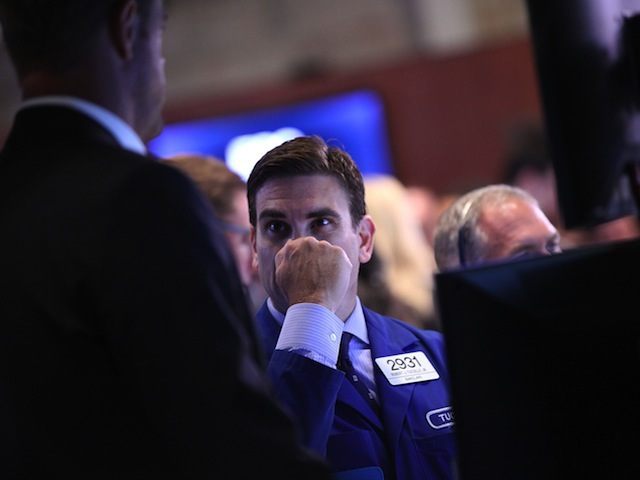So much for the idea that a combination of tax cuts and spending increases would push the economy to overheat and generate ruinous inflation.
Inflation numbers came in a bit higher than expected on Wednesday but instead of the highly anticipated sell-off, stocks rose. The Dow rose by almost one percent, while the S&P 500 rose by 1.4 percent and the Nasdaq Composite was up by nearly two percent.
This may indicate that the market had anticipated even higher inflation. Investors are not bound by the consensus view of economists surveyed by Bloomberg, after all.
But another set of numbers that came in Wednesday may also have played a role. Sales at U.S. retailers unexpectedly fell in January. The 0.3 percent decline was the largest in almost a year. Economists had forecast a gain of 0.2 percent.
The January decline is not an economic disaster. Retail sales have slowed but they remain at healthy levels. Much of that was due to falling auto sales and a decline in sales at home-improvement stores. Clothing stores, department stores, and gas stations all increased sales.
But a slower than expected retail sector likely means the economy will grow more slowly in the first quarter of 2018 than earlier economic data suggested. The Atlanta Fed’s GDPNow model dropped its estimate from 4.0 percent to 3.2 percent. Economists across Wall Street reduced their estimates. Instead of predicting between 2.3 percent and 3.3 percent annualized growth, they’re now looking for between 2.0 percent and 2.9 percent.
JPMorgan lowers 1Q GDP tracking estimate to 2.5% from 3.0% previously following disappointing retail sales report
— Blockchain Sam Ro (@bySamRo) February 14, 2018
Why would evidence that the economy is growing less vigorously than previously thought push up stocks? Recall that the recent sell-off was a “good news is bad news” phenomenon, apparently triggered by data showing wages were rising. On Wednesday, we may have experienced the counter-part to that: bad news is good news for stocks.
In other words, the unexpected retail contraction has made the dangers of the economy overheating–and the Federal Reserve hiking rates faster than expected–seem less likely.

COMMENTS
Please let us know if you're having issues with commenting.